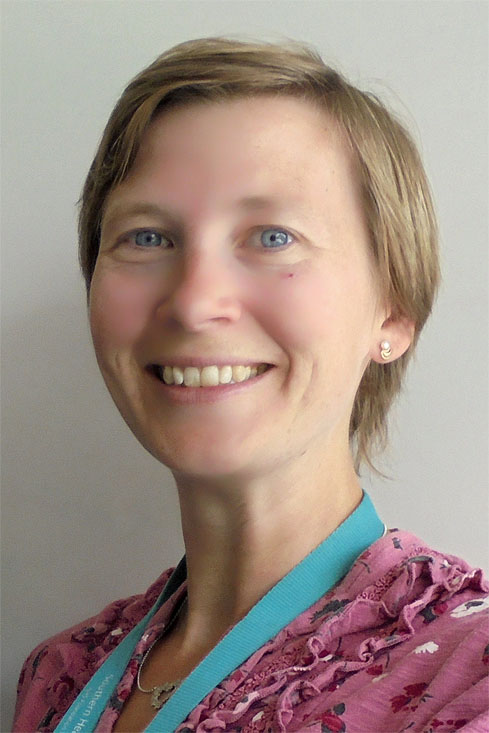
Abigail had speech and language therapy in mind as a career for as long as she could remember, but had no idea of the breadth of the profession until she looked into it seriously in her twenties.
She works as one of two speech and language therapists in a community learning disability team at Southern Health Foundation Trust. She also helps to run autism assessment clinics for adults.
How I got into the role
After a degree in modern languages and linguistics, I worked for a while as an editor. I was keen to find a career in healthcare, but one where I could use my skills in language and interaction. I confirmed my interest in speech and language therapy (SLT) by volunteering with charities such as Afasic and the Stroke Association, and working as a speech and language therapy assistant. I then took a two-year postgraduate diploma in speech and language therapy at London’s City University. I specialised in autism and learning disabilities in my first post and, 15 years on, still find this client group endlessly interesting and rewarding to work with.
What I do
As lead speech and language therapy for the community learning disability team, I work closely with my multidisciplinary team to empower adults with learning disabilities to have longer, healthier, happier lives. In this post I undertook further training to assess and intervene with eating and drinking difficulties (dysphagia). I aim to support people to enjoy mealtimes safely, and to communicate to their full potential. This might involve observation, training, and modelling strategies for carers, and creating accessible information resources, such as Talking Mats, to explore what’s important to the person. I meet with the other specialist speech and language therapists across the county to plan how our service can be as efficient and responsive as we can make it and to ensure we are following the best available evidence as it emerges.
I am also the speech and language therapist for the Autism Assessment Service. With my multidisciplinary colleagues, I run monthly clinics for adults who think they may have undiagnosed autism. As well as helping conduct in-depth diagnostic interviews, I might spend time assessing the person’s communication in detail, helping them to identify where their usually very subtle difficulties lie. This knowledge can help them to make sense of a lifetime of emotional struggle, social rejection, and employment breakdown, and begin to find ways of seeing their strengths and celebrating their difference.
The best bits
It’s amazing when you can make a connection with someone who may be very ‘hard to reach’ because of their severe communication difficulties. To see that moment where they can ask for something they want with a gesture, an object, or a picture, and to feel you had a part in making that happen, is a huge privilege.